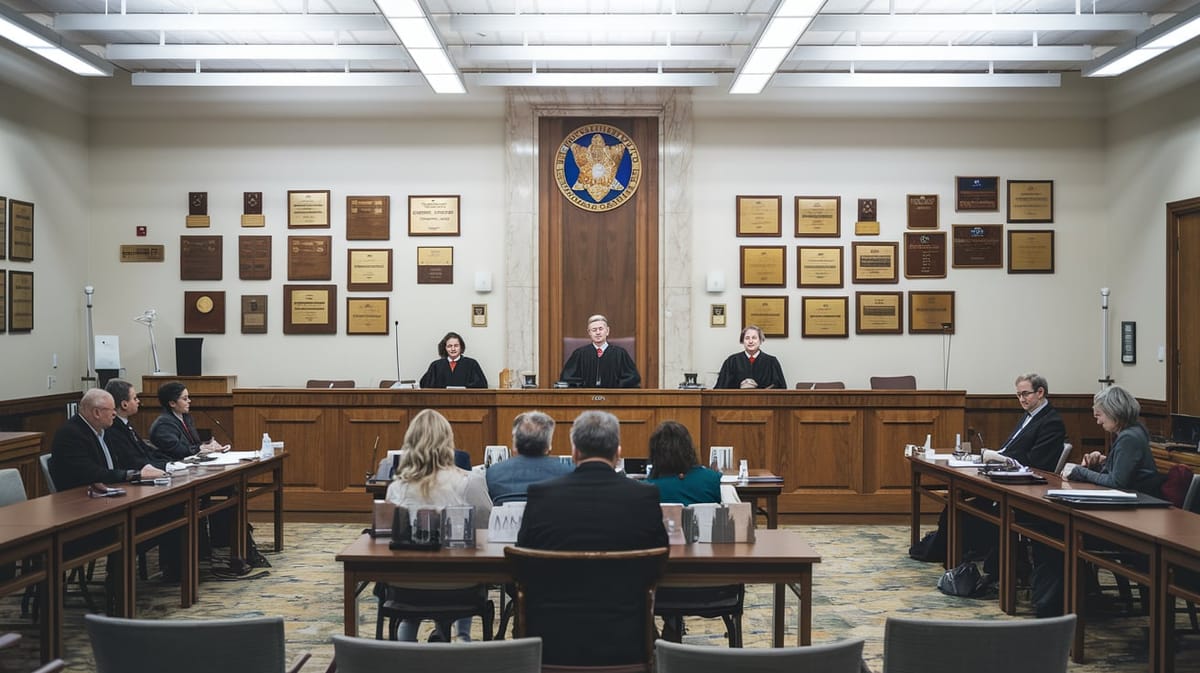How to ask ChatGPT about the laws of family court
Understanding How to Inquire About Family Court Laws Using ChatGPT

In the digital age, artificial intelligence (AI) has become an invaluable tool for accessing information across various domains, including legal matters. One such AI tool is ChatGPT, developed by OpenAI, which can provide insights into a wide range of topics, including family court laws. This report aims to guide users on how to effectively ask ChatGPT about family court laws, ensuring that the information received is accurate, relevant, and useful.
The Role of AI in Legal Information
AI technologies like ChatGPT are designed to process and generate human-like text based on the input they receive. They are trained on vast datasets, which include legal texts, case law, statutes, and other relevant materials. This allows them to provide users with information that can help in understanding complex legal issues, such as those encountered in family court (OpenAI, 2023).
Benefits of Using AI for Legal Queries
- Accessibility: AI tools are available 24/7, providing immediate access to information without the need for an appointment with a legal professional.
- Cost-Effectiveness: Using AI can be a cost-effective way to gather preliminary information before consulting a lawyer.
- Comprehensive Data Processing: AI can process and analyze large volumes of data quickly, offering insights that might take a human much longer to compile.
You can also visit Oncely.com to find more Top Trending AI Tools. Oncely partners with software developers and companies to present exclusive deals on their products. One unique aspect of Oncely is its “Lifetime Access” feature, where customers can purchase a product once and gain ongoing access to it without any recurring fees. Oncely also provides a 60-day money-back guarantee on most purchases, allowing customers to try out the products and services risk-free.
Oncely are hunting for the most fantastic AI & Software lifetime deals like the ones below or their alternatives:

How to Ask ChatGPT About Family Court Laws
To effectively use ChatGPT for inquiries about family court laws, it is essential to structure your questions clearly and concisely. Here are some steps and tips to consider:
1. Define Your Query
Before engaging with ChatGPT, clearly define what you want to know. Family court laws cover a wide range of topics, including divorce, child custody, alimony, and adoption. Be specific about the aspect of family law you are interested in.
Example:
- Instead of asking, "Tell me about family court," specify, "What are the child custody laws in California?"
2. Use Clear and Specific Language
AI models respond best to clear and specific questions. Avoid using vague or overly broad terms that might lead to ambiguous answers.
Example:
- Instead of asking, "What are the laws?" specify, "What are the legal requirements for filing for divorce in New York?"
3. Contextualize Your Question
Provide context to your question to help ChatGPT understand the background and provide a more tailored response. This might include mentioning relevant jurisdictions or specific legal terms.
Example:
- "In the context of Texas family law, what are the grounds for modifying a child support order?"
4. Ask Follow-Up Questions
If the initial response is not comprehensive, ask follow-up questions to delve deeper into the topic. This iterative process can help clarify complex legal issues.
Example:
- "Can you explain how the best interest of the child is determined in custody cases?"
5. Verify the Information
While ChatGPT can provide valuable insights, it is crucial to verify the information with authoritative sources or consult a legal professional, especially for critical legal decisions.
Understanding Family Court Laws
Family court laws vary significantly across different jurisdictions, reflecting the diverse legal frameworks and cultural norms that influence family-related legal matters. Here is an overview of some key areas within family court laws:
Divorce
Divorce laws dictate the legal process for dissolving a marriage. They cover aspects such as property division, spousal support, and the grounds for divorce. In the United States, divorce laws are state-specific, meaning the requirements and procedures can vary widely.
Key Considerations:
- No-Fault vs. Fault Divorce: Some states allow no-fault divorces, where no specific wrongdoing needs to be proven, while others require proof of fault, such as adultery or abandonment.
- Property Division: States may follow either community property or equitable distribution principles when dividing marital assets (American Bar Association, 2023).
Child Custody
Child custody laws determine the legal and physical custody arrangements for children following a divorce or separation. The primary consideration is the best interest of the child, which encompasses factors such as the child's age, health, emotional ties, and the parents' ability to care for the child.
Types of Custody:
- Legal Custody: The right to make important decisions about the child's life, such as education and healthcare.
- Physical Custody: Where and with whom the child will live.
Alimony
Alimony, or spousal support, involves financial payments from one spouse to another following a divorce. The purpose is to provide financial support to the lower-earning spouse to maintain a standard of living similar to that during the marriage.
Factors Influencing Alimony:
- Duration of the marriage
- Each spouse's financial resources and earning capacity
- Contributions to the marriage, including homemaking and child-rearing (Legal Information Institute, 2023).
Adoption
Adoption laws govern the legal process of adopting a child, which involves transferring parental rights from the biological parents to the adoptive parents. The process is highly regulated to ensure the welfare of the child.
Adoption Process:
- Home Study: An assessment of the adoptive family's home environment.
- Legal Proceedings: Court hearings to finalize the adoption and ensure compliance with state laws.
Conclusion
Asking ChatGPT about family court laws can be a valuable first step in understanding complex legal issues. By defining your query, using clear language, providing context, and asking follow-up questions, you can maximize the effectiveness of your interaction with AI. However, it is essential to verify the information obtained and consult with legal professionals for critical decisions. AI tools like ChatGPT are powerful resources, but they should complement, not replace, professional legal advice.
References
American Bar Association. (2023). Family Law. https://www.americanbar.org/groups/family_law/
Legal Information Institute. (2023). Alimony. https://www.law.cornell.edu/wex/alimony





